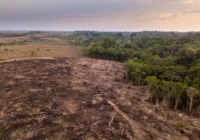Turkish President Recep Tayyip Erdoğan and Russian President Vladimir Putin met in Sochi, Russia on September 4, 2023. Their main objective was to revive the stalled Ukrainian grain deal. The deal, brokered by Turkey and the UN, was first signed in July 2022. It collapsed on July 17, 2023 when Russia pulled out, citing unfulfilled promises on its own agricultural exports.
Erdoğan aims to maintain his international standing and address domestic pressures, both of which were bolstered by the deal’s initial success. Reviving it would also demonstrate Turkey’s diplomatic finesse as it navigates complex alliances between Russia and NATO.
The Black Sea’s fragile lifeline
Russia’s control of Ukrainian Black Sea ports during the war threatened a global food crisis. The July 2022 Black Sea Grain Initiative (BSGI) offered a precarious solution, allowing Ukrainian grain exports to resume. In exchange, the UN pledged to facilitate Russian agricultural exports hampered by Western sanctions.
However, the deal’s fate remained precarious. Russia’s suspension shattered hopes of stability. The nation threatened the Black Sea as a potential warzone and demanded relaxed sanctions. Simultaneously, Russian forces maintained their assault on Ukrainian ports through missile and drone strikes. They escalated the threat by declaring all vessels in the Black Sea as potential military targets. In response, Ukraine established a humanitarian corridor along the coasts of Romania and Bulgaria, albeit at the cost of increased expense and travel time.
Putin’s conditional offer for revival — full removal of restrictions on Russian agricultural exports — met with skepticism. Though Western critics identify Russia’s withdrawal as a contributor to the food crisis, Putin countered them by asserting that the issue had deeper roots. Putin blames the West for the global food crisis and denies responsibility for the grain deal collapse.
Despite the cautious optimism spurred by UN Secretary-General António Guterres’ proposal, the BSGI remains entangled in an intractable impasse. His proposal, which included SWIFT access for a subsidiary of Russia’s Agricultural Bank, aimed to address Russia’s concerns. It did not suffice. Negotiations have yielded no significant breakthroughs, leaving the precarious lifeline for global food security suspended in limbo. The ramifications of this stagnation are stark: A deepening global food crisis threatens famine in vulnerable regions, while rising food prices further strain already burdened economies.
Deflecting dissent with diplomacy: Erdoğan’s high-stakes of BSGI
The BSGI garnered Erdoğan considerable international acclaim. A Pew Research Center poll conducted across 17 countries revealed that 67% viewed Turkey’s role in the deal positively. However, this past acclaim faces the countervailing pressure of recent UN Security Council criticism stemming from clashes in Cyprus. The Council highlighted rising regional tensions while condemning an assault by Turkish Cypriot security forces on UN Peacekeeping Force members. This criticism underscores the urgency for Erdoğan to secure a diplomatic win, a potential avenue offered by reviving the BSGI.
Reviving the grain deal could boost Erdoğan’s image by countering criticism and showcasing his dedication to dialogue, cooperation and global food security. This aligns perfectly with Turkey’s role as a guarantor power in Cyprus and its support for a bi-zonal, bi-communal federation. It would not only solidify past success but also propel Erdoğan back into the international spotlight.
Domestically, Turkey faces economic challenges, with inflation exceeding 64% in January 2024. This has eroded the purchasing power and living standards of millions of Turks, especially the working and lower middle classes who form the core of Erdoğan’s support base. The high inflation has also come with a weak currency, a large current account deficit, a low level of foreign exchange reserves and a high level of external debt.
These economic woes have taken a toll on Erdoğan’s popularity and approval ratings, which dipped below 40%. Erdoğan, who has been in power since 2003, faces a formidable challenge from a united opposition bloc. The opposition has accused Erdoğan of mismanaging the economy, undermining democracy, violating human rights and pursuing an adventurous foreign policy. Erdoğan has dismissed these criticisms as part of a foreign-backed conspiracy to overthrow him and weaken Turkey.
A successful revival of the grain deal with Russia could deflect attention from these domestic issues and potentially boost Erdoğan’s domestic standing. He could claim that he has delivered a diplomatic victory for Turkey and its allies and secured the country’s food security and economic interests. He could also argue that he has restored Turkey’s regional role and influence.
NATO, neutrality and the S-400: Can Erdoğan reconcile alliance commitments?
Erdoğan seeks to improve relations with Russia, which are strained by their divergent interests and interventions in Syria, Libya and the Caucasus. In these three conflicts, Russia and Turkey have backed opposing sides. Russia backs the Assad Regime in Syria, the eastern-based commander Khalifa Haftar in Libya and has a defense pact with Armenia in the Caucasus. Conversely, Turkey backs the rebel groups in Syria, the UN-recognized Government of National Accord in Libya and has close ties with Azerbaijan in the Caucasus. These rivalries create tensions and mistrust between the Turkish and Russian capitals of Ankara and Moscow, respectively, threatening to escalate into wider regional wars.
Erdoğan believes that by engaging in dialogue and cooperation with Russia, he can manage these conflicts and prevent them from spiraling out of control. He hopes to find common ground and mutual benefits with Moscow on other issues, such as trade, energy and security. Erdoğan sees Russia as a potential partner and a counterweight to the West.
However, Turkey’s delicate balancing act between its NATO commitments and its growing partnership with Russia, exemplified by the 2017 purchase of the S-400 missile system, further complicates the situation. The S-400’s incompatibility with NATO systems and possible security threats raise concerns among allies. It led to US warnings as well as potential Countering America’s Adversaries Through Sanctions Act (CAATSA) sanctions and exclusion from the F-35 program — a program that leads the international distribution of F-35 Lightning II fighter jets. Erdoğan defends the purchase as a sovereign decision and emphasizes the need for these weapons for Turkey’s defense and autonomy. At the same time, however, he seeks to maintain cordial relations with Russia despite regional differences.
A successful BSGI revival could demonstrate Turkey’s diplomatic prowess and reaffirm its neutrality in the current conflict. This would potentially ease tensions within NATO. Erdoğan could claim he has managed to balance the interests and expectations of both Russia and NATO, without compromising Turkey’s alliance loyalty or strategic autonomy. He could stress that the deal is not aimed at undermining NATO’s cohesion or credibility, but rather at enhancing its security and stability through cooperation.
Leveraging the BSGI for trade, security and global impact
The BSGI transcends its diplomatic significance for Erdoğan and Turkey, presenting a lucrative economic opportunity. By facilitating the transit of Ukrainian grain through the Turkish Straits, the BSGI unlocks new markets for Turkish goods. Particularly, this includes agricultural products that are in high demand internationally. Turkish Statistical Institute data indicates a 12% year-on-year increase in agricultural exports to $25.3 billion in 2022.
Moreover, the BSGI strengthens Turkey’s ties with key trade partners in Africa and the Middle East. These regions are heavily reliant on Ukrainian grain for food security. International Grains Council data highlights Ukraine’s position as the world’s third-largest wheat and corn exporter; its primary markets include Egypt, Saudi Arabia, Morocco, Algeria and Tunisia. These nations have also been among Turkey’s top trading partners, totalling $32.4 billion in 2022. The BSGI could solidify Turkey’s role as a reliable and strategic partner for these countries, even positioning them as a potential mediator for regional conflicts.
Beyond economics, the BSGI carries humanitarian significance. It potentially mitigates the global food crisis exacerbated by the Ukraine war. World Bank reports document disrupted agricultural production and distribution, leading to food shortages, price hikes and rising poverty. Their estimates warn of an additional 263 million people facing food insecurity due to the conflict, impacting not only neighboring countries but also regions across Europe, Asia and Africa. Reviving the BSGI allows Erdoğan to showcase his commitment to global food security efforts, positioning Turkey as a key player in addressing one of the 21st century’s most pressing challenges.
[Ali Omar Forozish and Lee Thompson-Kolar edited this piece.]
The views expressed in this article are the author’s own and do not necessarily reflect Fair Observer’s editorial policy.
Support Fair Observer
We rely on your support for our independence, diversity and quality.
For more than 10 years, Fair Observer has been free, fair and independent. No billionaire owns us, no advertisers control us. We are a reader-supported nonprofit. Unlike many other publications, we keep our content free for readers regardless of where they live or whether they can afford to pay. We have no paywalls and no ads.
In the post-truth era of fake news, echo chambers and filter bubbles, we publish a plurality of perspectives from around the world. Anyone can publish with us, but everyone goes through a rigorous editorial process. So, you get fact-checked, well-reasoned content instead of noise.
We publish 2,500+ voices from 90+ countries. We also conduct education and training programs
on subjects ranging from digital media and journalism to writing and critical thinking. This
doesn’t come cheap. Servers, editors, trainers and web developers cost
money.
Please consider supporting us on a regular basis as a recurring donor or a
sustaining member.
Will you support FO’s journalism?
We rely on your support for our independence, diversity and quality.










Comment